April 4, 2024 at 12:00 am
Presenter: Megan Brown
 Megan is a Senior Research Associate in Medical Education, within the School of Medicine at Newcastle University. Alongside her role as the Director of Social Media and Communications at ASME, she holds other national appointments including as Communications Workstream Co-lead for the Incubator for Clinical Education Research, and as vice-chair of the MedEd Collaborative. She has eleven years’ experience in social media management in the private sector.
Megan is a Senior Research Associate in Medical Education, within the School of Medicine at Newcastle University. Alongside her role as the Director of Social Media and Communications at ASME, she holds other national appointments including as Communications Workstream Co-lead for the Incubator for Clinical Education Research, and as vice-chair of the MedEd Collaborative. She has eleven years’ experience in social media management in the private sector.
Megan has a background in clinical medicine but has transitioned full-time to academia. Her research interests are varied and include workforce issues within the health and social care services, identity development, qualitative research methods, and the arts and humanities (particularly poetry and philosophy). She is multiply disabled, and brings this perspective and insight to her work, particularly research exploring the experiences of those who are underrepresented in medicine.
This webinar covers the concept of the hidden curriculum in health professions education, a critical, yet often overlooked, aspect of educational environments that significantly influences teaching and learning experiences. We will explore the theoretical foundations of the hidden curriculum, examining how unspoken norms, values, and beliefs shape our educational environments and impact students’ identity formation. Throughout, we will consider practical strategies for educators to recognize and explore the hidden curriculum in their own teaching and practice. Ultimately, this webinar aims to equip medical educators with the insights and tools they need to navigate the hidden curriculum, enhancing the impact of their teaching, and the learning journey of trainee health professionals. The concluding Q&A offers an opportunity for attendees to engage in dialogue, share experiences, and seek advice on implementing presented strategies in their own educational contexts.
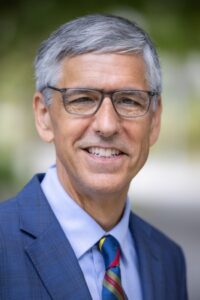
 Dr. Tibbles specializes in the implementation of lean practices in the ED and lean team training program development. She completed an emergency medicine residency at Hennepin County Medical Center in Minneapolis, Minnesota. As the director of clinical innovations, Dr. Tibbles has expertise in the application of lean principles in the emergency department. Lean methodology, based on the Toyota Production System, is a proven process improvement and management strategy focused on cutting costs by improving efficiency, eliminating waste, and streamlining and standardizing processes. Dr. Tibbles has also focused much of her career on risk management strategies and has led two multi-center projects designed to improve communication among providers in the emergency department. She currently works as a risk management consultant for CRICO/ Harvard Risk Management implementing education programs and risk mitigation strategies to address current trends in malpractice data. Dr. Tibbles has served as the associate residency director of the Harvard Affiliated Emergency Medicine Residency for 10 years and, after completing a fellowship in medical education, became the director for Graduate Medical Education at Beth Israel Deaconess Medical Center.
Dr. Tibbles specializes in the implementation of lean practices in the ED and lean team training program development. She completed an emergency medicine residency at Hennepin County Medical Center in Minneapolis, Minnesota. As the director of clinical innovations, Dr. Tibbles has expertise in the application of lean principles in the emergency department. Lean methodology, based on the Toyota Production System, is a proven process improvement and management strategy focused on cutting costs by improving efficiency, eliminating waste, and streamlining and standardizing processes. Dr. Tibbles has also focused much of her career on risk management strategies and has led two multi-center projects designed to improve communication among providers in the emergency department. She currently works as a risk management consultant for CRICO/ Harvard Risk Management implementing education programs and risk mitigation strategies to address current trends in malpractice data. Dr. Tibbles has served as the associate residency director of the Harvard Affiliated Emergency Medicine Residency for 10 years and, after completing a fellowship in medical education, became the director for Graduate Medical Education at Beth Israel Deaconess Medical Center.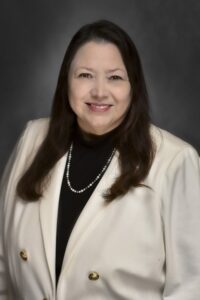 Dr. Jimenez is a family physician who practiced for 20 years in a rural community. She began teaching CME in 2003, then taught NP and PA students and started teaching medical students in 2013. She is a Health Policy Fellow and a Costin scholar and just finished her Master of Health Professions Education. She is currently Dean and Chief academic officer at Arkansas College of Osteopathic Medicine. She has spoken nationally about Spirometry and Asthma, Data on supplement use, and Food as Medicine. Her publications include an article and book chapter on intergenerational communication. She is currently doing research on remediation and struggling medical learners. Dr. Jimenez has been married 27 years, has 2 kids and loves to travel.
Dr. Jimenez is a family physician who practiced for 20 years in a rural community. She began teaching CME in 2003, then taught NP and PA students and started teaching medical students in 2013. She is a Health Policy Fellow and a Costin scholar and just finished her Master of Health Professions Education. She is currently Dean and Chief academic officer at Arkansas College of Osteopathic Medicine. She has spoken nationally about Spirometry and Asthma, Data on supplement use, and Food as Medicine. Her publications include an article and book chapter on intergenerational communication. She is currently doing research on remediation and struggling medical learners. Dr. Jimenez has been married 27 years, has 2 kids and loves to travel.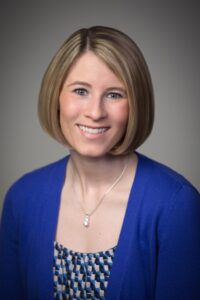 Sarah Lerchenfeldt is an Associate Professor and Vice Chair for Administration in the Department of Foundational Medical Studies. She provides instruction in pharmacology throughout the curriculum and serves as co-director of the Hematology and Oncology course for first year medical students. Dr. Lerchenfeldt is also a Team-Based Learning Collaborative Trainer-Consultant and is actively involved with the many of the team-based learning activities throughout the program. Her scholarly interest is focused primarily on the theme of teamwork in health education, in which most of her research and scholarly output concentrates on several different facets of teamwork and collaborative learning.
Sarah Lerchenfeldt is an Associate Professor and Vice Chair for Administration in the Department of Foundational Medical Studies. She provides instruction in pharmacology throughout the curriculum and serves as co-director of the Hematology and Oncology course for first year medical students. Dr. Lerchenfeldt is also a Team-Based Learning Collaborative Trainer-Consultant and is actively involved with the many of the team-based learning activities throughout the program. Her scholarly interest is focused primarily on the theme of teamwork in health education, in which most of her research and scholarly output concentrates on several different facets of teamwork and collaborative learning.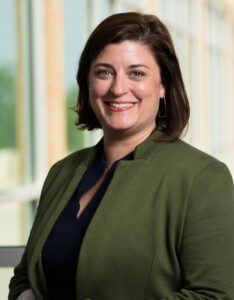 Dr. Sawarynski received her Cancer Biology PhD from Wayne State University School of Medicine and Karmanos Cancer Institute. Dr. Sawarynski is an Associate Professor of Foundational Medical Studies at Oakland University William Beaumont (OUWB) with a focus on Medical Education and Cell Biology. Since 2015, Dr. Sawarynski has served as an Embark Program Co-Director which includes development of the longitudinal research design courses and program milestone events, and advising the medical student body in the conception and execution of their required independent research projects. Along with her faculty role, Dr. Sawarynski is the Assistant Dean for Accreditation and Continuous Quality Improvement and is working with medical educators across the continuum to evolve the curriculum to meet the needs of today’s medical student. Dr. Sawarynski’s current research is focused on medical student wellness, improving research design instruction, and developing educational scaffolds to support GenZ students. She is a national AAMC Leadership Education and Development (LEAD) certificate program graduate, an OUWB Diversity Champion graduate and has completed Brené Brown’s Dare to Lead training certificate program. Dr. Sawarynski is passionate about creating an environment in which all students and faculty can thrive.
Dr. Sawarynski received her Cancer Biology PhD from Wayne State University School of Medicine and Karmanos Cancer Institute. Dr. Sawarynski is an Associate Professor of Foundational Medical Studies at Oakland University William Beaumont (OUWB) with a focus on Medical Education and Cell Biology. Since 2015, Dr. Sawarynski has served as an Embark Program Co-Director which includes development of the longitudinal research design courses and program milestone events, and advising the medical student body in the conception and execution of their required independent research projects. Along with her faculty role, Dr. Sawarynski is the Assistant Dean for Accreditation and Continuous Quality Improvement and is working with medical educators across the continuum to evolve the curriculum to meet the needs of today’s medical student. Dr. Sawarynski’s current research is focused on medical student wellness, improving research design instruction, and developing educational scaffolds to support GenZ students. She is a national AAMC Leadership Education and Development (LEAD) certificate program graduate, an OUWB Diversity Champion graduate and has completed Brené Brown’s Dare to Lead training certificate program. Dr. Sawarynski is passionate about creating an environment in which all students and faculty can thrive.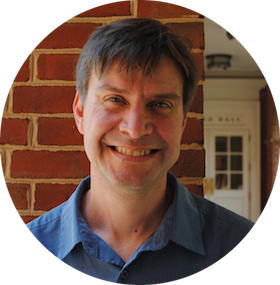 Dr. Kenn Barron is a Professor of Psychology at James Madison University (JMU) and Coordinator of JMU’s Motivation Research Institute. He also is a faculty fellow and member of Motivate Lab at the University of Virginia. His research focuses on motivation and the scholarship of teaching and learning (SoTL), and has appeared in the Journal of Educational Psychology, Contemporary Educational Psychology, Educational and Psychological Measurement, Educational Psychologist, the Journal of Personality and Social Psychology, Teaching of Psychology, and New Directions for Teaching and Learning. Kenn also routinely puts his knowledge of motivation and SoTL into practice teaching coursework in research methods, statistics, and psychology, and leading high impact practice initiatives like JMU’s Psychology Learning Community (PLC). The PLC is designed for first year students who have an interest in pursuing a major in Psychology and a future research career in a Psychology-related field. Members live together in the same residence hall while completing a series of curricular and co-curricular experiences designed specifically for them. Throughout his career, he has received numerous teaching, research, service, and advising awards. For example in 2012, he was named both a fellow of the American Psychological Association and one of Princeton Review’s Top 300 professors in America.
Dr. Kenn Barron is a Professor of Psychology at James Madison University (JMU) and Coordinator of JMU’s Motivation Research Institute. He also is a faculty fellow and member of Motivate Lab at the University of Virginia. His research focuses on motivation and the scholarship of teaching and learning (SoTL), and has appeared in the Journal of Educational Psychology, Contemporary Educational Psychology, Educational and Psychological Measurement, Educational Psychologist, the Journal of Personality and Social Psychology, Teaching of Psychology, and New Directions for Teaching and Learning. Kenn also routinely puts his knowledge of motivation and SoTL into practice teaching coursework in research methods, statistics, and psychology, and leading high impact practice initiatives like JMU’s Psychology Learning Community (PLC). The PLC is designed for first year students who have an interest in pursuing a major in Psychology and a future research career in a Psychology-related field. Members live together in the same residence hall while completing a series of curricular and co-curricular experiences designed specifically for them. Throughout his career, he has received numerous teaching, research, service, and advising awards. For example in 2012, he was named both a fellow of the American Psychological Association and one of Princeton Review’s Top 300 professors in America.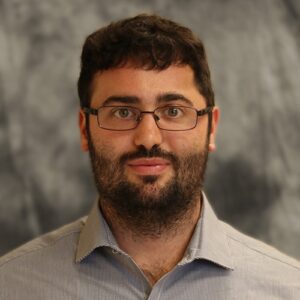 Zachary Himmelberger, Ph.D., is the Lead Data Science Manager at Motivate Lab. He has experience developing statistical models in a wide range of educational and psychological settings. His research interests involve creating more equitable social environments for all students, particularly those with disabilities.
Zachary Himmelberger, Ph.D., is the Lead Data Science Manager at Motivate Lab. He has experience developing statistical models in a wide range of educational and psychological settings. His research interests involve creating more equitable social environments for all students, particularly those with disabilities.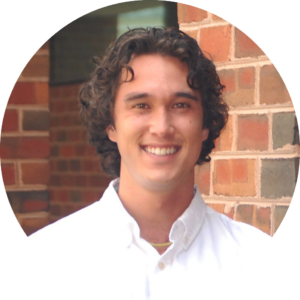 Yoi Tibbetts is the Research Director at Motivate Lab and an Assistant Professor of Education at the University of Virginia. He researches motivation and achievement with a focus on changing institutional structures to better support students from traditionally underrepresented backgrounds excel in higher education. In addition to implementing student-centered interventions designed to address issues related to inequity in education, Dr. Tibbetts has a distinct focus on leveraging research to create more motivationally supportive learning contexts, particularly for students from historically disenfranchised backgrounds. His latest publications explicate what factors support student retention in STEM disciplines and biomedical fields. He earned his PhD in social psychology from the University of Wisconsin-Madison in 2017.
Yoi Tibbetts is the Research Director at Motivate Lab and an Assistant Professor of Education at the University of Virginia. He researches motivation and achievement with a focus on changing institutional structures to better support students from traditionally underrepresented backgrounds excel in higher education. In addition to implementing student-centered interventions designed to address issues related to inequity in education, Dr. Tibbetts has a distinct focus on leveraging research to create more motivationally supportive learning contexts, particularly for students from historically disenfranchised backgrounds. His latest publications explicate what factors support student retention in STEM disciplines and biomedical fields. He earned his PhD in social psychology from the University of Wisconsin-Madison in 2017. Megan is a Senior Research Associate in Medical Education, within the School of Medicine at Newcastle University. Alongside her role as the Director of Social Media and Communications at ASME, she holds other national appointments including as Communications Workstream Co-lead for the Incubator for Clinical Education Research, and as vice-chair of the MedEd Collaborative. She has eleven years’ experience in social media management in the private sector.
Megan is a Senior Research Associate in Medical Education, within the School of Medicine at Newcastle University. Alongside her role as the Director of Social Media and Communications at ASME, she holds other national appointments including as Communications Workstream Co-lead for the Incubator for Clinical Education Research, and as vice-chair of the MedEd Collaborative. She has eleven years’ experience in social media management in the private sector.